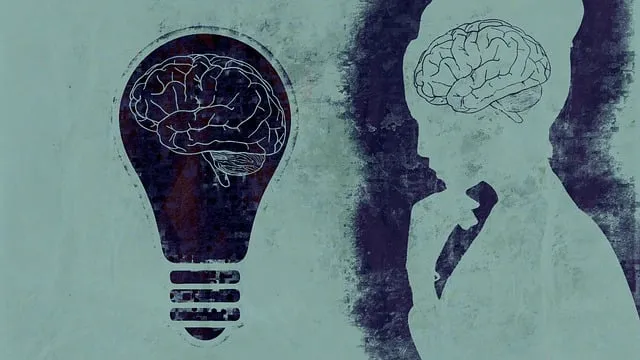Mindfulness meditation, promoted by the Superior Kaiser Mental Health Programs, enhances stress management, boosts emotional intelligence, and fosters inner peace. Incorporating these programs into your routine offers a comprehensive approach to mental wellness through mindfulness training, cognitive behavioral therapy, and accessible podcasts. Starting a practice involves setting intentions, creating a dedicated space, and beginning with short breath-focused sessions. Advanced techniques like mindful breathing and intermittent mindfulness elevate the effectiveness of your practice for optimal mental well-being.
“Unwind and discover inner peace with a journey into mindfulness meditation. This comprehensive guide offers a holistic approach to mental well-being, highlighting the transformative power of Kaiser’s superior mental health programs. From beginners to advanced practitioners, each section provides valuable insights.
We’ll start by demystifying mindfulness, exploring its benefits, and showing how integrating these practices can enhance your daily life. Learn from expert advice on establishing a routine, advanced techniques for deeper focus, and tips to overcome challenges. Embrace the art of mindfulness meditation and unlock a calmer, more mindful you.”
- Understanding Mindfulness Meditation: A Foundation for Mental Well-being
- The Benefits of Incorporating Kaiser's Mental Health Programs into Your Routine
- Step-by-Step Guide to Starting and Maintaining a Consistent Practice
- Advanced Techniques for Enhancing Mindfulness Meditation Session Effectiveness
Understanding Mindfulness Meditation: A Foundation for Mental Well-being

Mindfulness meditation is a practice that cultivates present-moment awareness and non-judgmental observation of thoughts and feelings. It’s a simple yet profound technique that forms the foundation for improved mental well-being, as recognized by superior Kaiser mental health programs. By focusing on the here and now, individuals can enhance their ability to manage stress, anxiety, and even burnout prevention, according to extensive research. This ancient practice has gained significant traction in modern times due to its effectiveness in promoting Mental Health Awareness and boosting confidence.
Regular mindfulness meditation encourages a deeper understanding of one’s thoughts and emotions, fostering a sense of inner peace and clarity. It enables individuals to create space between their initial reaction and subsequent response, leading to more thoughtful decisions and improved emotional intelligence. This ability to observe without judgment is a cornerstone of mental wellness, allowing people to navigate life’s challenges with greater resilience.
The Benefits of Incorporating Kaiser's Mental Health Programs into Your Routine

Incorporating Kaiser’s Mental Health Programs into your routine offers a plethora of benefits designed to enhance overall mental wellness. These superior Kaiser mental health programs go beyond traditional meditation, encompassing a diverse range of practices such as mindfulness training, stress management techniques, and cognitive behavioral therapy. By integrating these programs into your daily life, you can effectively combat burnout prevention, a growing concern in today’s fast-paced world.
One notable advantage is the Mental Wellness Podcast Series Production, which provides accessible platforms for learning and self-reflection. Through engaging content, these podcasts facilitate deeper understanding of mental health concepts and encourage the development of essential self-awareness exercises. This multimedia approach not only caters to different learning styles but also makes it easier for individuals to stay informed and committed to their mental wellness journey.
Step-by-Step Guide to Starting and Maintaining a Consistent Practice

Starting a mindfulness meditation practice is a journey that can significantly enhance your mental health and overall well-being. The Kaiser mental health programs offer an excellent framework for this transformative process, especially for healthcare providers looking to incorporate burnout prevention strategies into their routines. Here’s a step-by-step guide to get you began:
1. Set Your Intentions: Begin by clarifying your reasons for practicing mindfulness. Do you seek anxiety relief? Want to improve emotional healing processes? Or aim to cultivate a sense of calm amidst the chaos? Setting intentions will help guide and motivate your consistent practice.
2. Choose a Quiet Space: Create a dedicated, peaceful environment free from distractions. This space should be comfortable and invite relaxation. Whether it’s a quiet room in your home or a tranquil corner at work, ensure it’s a place where you can consistently sit for your practice.
3. Establish a Routine: Consistency is key. Set aside a specific time each day for meditation, preferably upon waking or before bed. The routine will help train your mind and body to anticipate the practice, making it easier to maintain over time.
4. Start Simple: Begin with short sessions of 5-10 minutes and gradually increase the duration as you grow more comfortable. Focus on observing your breath without judgment. When thoughts arise, gently return your attention to your breath, creating a moment-by-moment awareness.
5. Utilize Guided Meditations: For beginners, guided meditations can be invaluable. Many Kaiser mental health programs offer these, providing clear instructions and helping you stay engaged. These sessions can also introduce various meditation techniques tailored to specific goals like stress reduction or anxiety relief.
6. Track Your Progress: Keep a journal to record your daily practice. Note any challenges faced and the accompanying emotions. Tracking progress allows you to witness the transformative power of mindfulness over time, fostering motivation to continue.
7. Be Patient and Kind: Remember, building a consistent meditation practice takes time and effort. Be patient with yourself, especially when finding silence challenging. Embrace each session as an opportunity for growth, embracing the process rather than fixating on perfection.
Advanced Techniques for Enhancing Mindfulness Meditation Session Effectiveness

To elevate your mindfulness meditation practice to new heights, incorporating advanced techniques can significantly enhance session effectiveness. One powerful method is mindful breathing with a focus on extended exhales, which allows for deeper relaxation and calming of the nervous system. This technique, often taught in superior Kaiser mental health programs, encourages practitioners to extend their breath release, promoting a sense of peace and clarity.
Additionally, intermittent mindfulness involves practicing awareness during everyday tasks, such as walking or eating. By cultivating present-moment awareness in these routine activities, individuals can improve their overall emotional intelligence and social skills training. This heightened mindfulness can lead to increased confidence boosting, making even the most mundane tasks more enjoyable and meaningful.
Mindfulness meditation, with its roots in ancient practices, has gained modern prominence for its profound impact on mental well-being. By incorporating superior Kaiser mental health programs into your routine, you can unlock a wealth of benefits designed to enhance your overall life quality. Through this article’s comprehensive guide, from understanding the foundation to exploring advanced techniques, you’ve equipped yourself with the tools to embark on a consistent mindfulness journey. Remember, the key lies in persistence; the more you practice, the deeper the transformation. Embrace the calm and clarity that await, and let mindfulness meditation be your guiding light toward optimal mental health.




